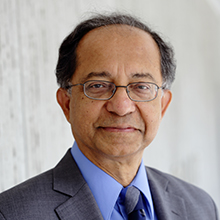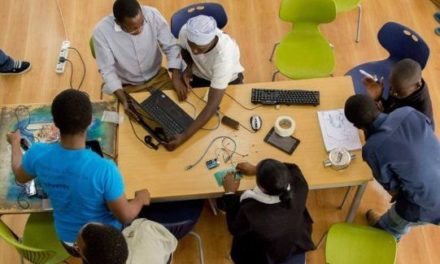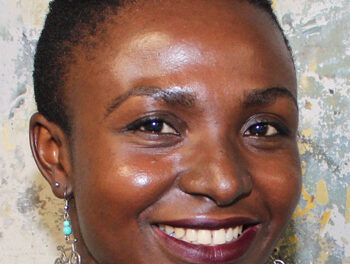
Economic inclusion of people with disabilities cornerstone for economic growth

By Josef Kefas Sheehama.
It is indeed regrettable that people with disabilities continue to face exclusion from the economy. We are excluded from employment, skills training, education, and other critical areas of development.
The latest reports indicate that 95% of people who have disabilities in the Kunene region are unemployed, while in the Khomas region, it is nearly 70% according to the Namibia Association for Wheelchair Users.
Furthermore, the United Nations Children’s Fund (UNICEF) reported that Namibia’s Disability Spending Falls below Adequate Levels. For nearly 15% of disabled Namibians, expenditure remained relatively low. Between 2018 and 2023, disability spending averaged below 0.4% of the Gross Domestic Product (GDP) and below 1.4% of the total budget. The national disability prevalence rate is estimated at 5% of the total population in Namibia. This means there are more or less 125,000 people living with disabilities. Disability is more prevalent among females compared to males.
It really does take a significant mental shift to meet the needs of those with disabilities. Realizing their particular difficulties, promoting inclusivity, and making a concerted effort to establish a welcoming and encouraging atmosphere are all necessary. A more inclusive society where each person’s abilities are respected and accommodated can be created by promoting empathy, education, and awareness.
It is depressing when those in charge of handling matters pertaining to people with disabilities fail to live up to expectations. Disability awareness is a crucial aspect of promoting inclusivity and understanding. The people tasked with caring for the disabled are not doing enough to help them integrate into the mainstream economy. Raising awareness is closely related to accessibility. To guarantee the full participation and inclusion of people with disabilities, the Deputy Minister of Disability Affairs and several organizations dedicated to supporting and advocating for the rights of people with disabilities, must raise awareness of the difficulties faced by individuals with disabilities and encourage the principles of accessibility and universal design in all spheres of society.
The lack of awareness prevents people with disabilities from fully participating in the mainstream economy. The socio-economic gap between persons with and without disabilities is increasing because persons with disabilities experience low levels of education, higher rates of unemployment and economic inactivity, and a lack of social protection in comparison to their peers without disabilities.
Namibia, like most countries, needs every skilled worker to contribute to the prosperity of the country. Persons with disabilities have an important role to play in making a positive contribution to the country. It is generally known that a person with a disability develops into a well-adjusted, productive worker in an atmosphere of acceptance, cooperation, and goodwill. It is often seen that workers with disabilities are more productive than their co-workers and that they are less absent from work and show great loyalty to their company. Namibia has ratified various international conventions affirming a commitment to accept persons with disabilities, focusing on their abilities and not their disabilities; providing equal education and employment opportunities to them; and treating them with the respect due to every human being. Disabilities are never contagious, and people with disabilities are not meant to be disrespected by anyone as it is not their own choice. If they were given the choice, they would have chosen to be respected with a healthy life but unfortunately, people around them do not understand this. We must respect people around us to ensure that they are not demotivated with their life, and are respected equally as people with a healthy life without disabilities.
As a person with physical disability can attest, persons with disabilities in Namibia persistently face stigma, discrimination and barriers to accessing basic social services and economic opportunities. For one, persons with disabilities may experience negative attitudes at family and community levels, including name-calling, negative beliefs, and misconceptions surrounding the causes of disabilities. These negative attitudes manifest in rejection, neglect, loss of respect, and denial of identity or self-worth, and often result in low self-esteem, depression, and isolation. In addition, many will experience frequent denial of job opportunities, employers’ negative attitudes, inappropriate job placements, lower expectations at work, and a lack of reasonable accommodation. These challenges compound the vulnerability of persons with disabilities.
Moreover, it is important that the Deputy Minister of Disability Affairs, organizations, policymakers, and decision-makers are aware of the importance of disability as a development issue, and enhance data collection on disability. A concerted effort to raise awareness surrounding disability issues would serve to shift negative perceptions and stigma against persons with disabilities among families and communities.
Furthermore, investments in inclusive employment and livelihood interventions are critical to addressing unemployment challenges amongst persons with disabilities. These could include entrepreneurship training and business advisory services, as well as the promotion of locally-produced assistive devices and accessible workplaces. Disability-focused organizations in Namibia should be empowered to support this process and provide services to persons with disabilities.
Organizations must ensure that persons with disabilities are represented in their workplace and their talent pipeline. Beyond employing, employers should implement practices that encourage and help progress persons with disabilities. Companies should offer mentoring and coaching initiatives, as well as upskilling/reskilling programmes to ensure that persons with disabilities continue to grow and succeed. Persons with disabilities should occupy roles at all levels, including top leadership positions.
At the same time, CEOs and investors need to understand the strong qualitative and quantitative business case for robust disability inclusion programmes. By making companies aware of the potential gains, sharing success stories, and demonstrating how to build a more inclusive talent pipeline, we can quickly get more persons with disabilities into the workforce. Speak to the life experiences of those with disabilities. Yes, disability inclusion isn’t just about making life better for your customers and employees; it’s a smart business move too.
Additionally, by putting disability on the business agenda, brands have a real opportunity to increase appeal to a wider customer base and build a strong employer brand that helps attract and retain the very best talent. Brands that embrace disabled people can inspire so many in the next generation to realize their dreams; to realize that nothing is impossible.
To this end, the Deputy Minister of Disability Affairs must comply with international law, address the needs, and include persons with disabilities in economic participation. Dedicated leadership roles for disability experts in decision making is essential, persons with disabilities should be included in all policymaking and implementation for economic development.
Overall, achieving inclusive economic growth will be challenging without the inclusion of persons with disabilities.













































